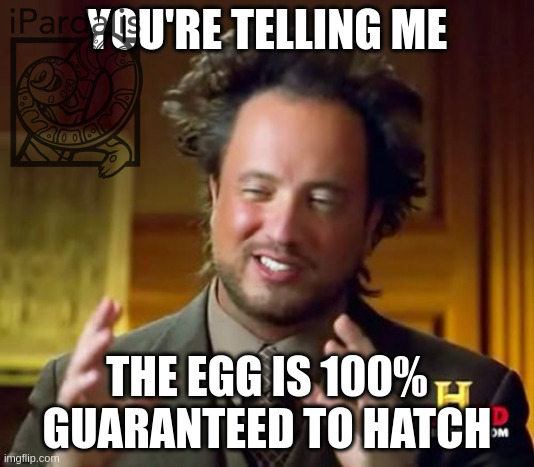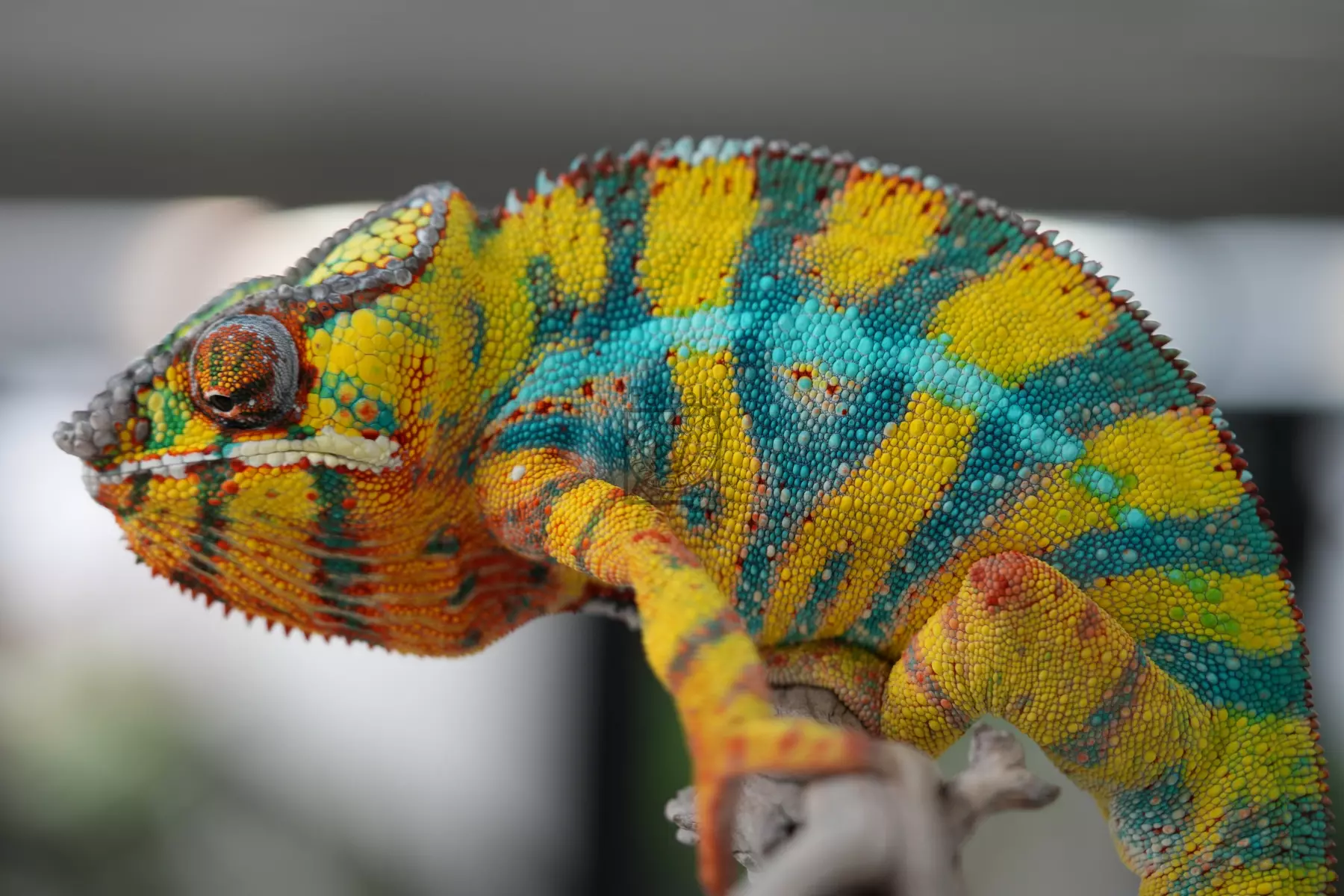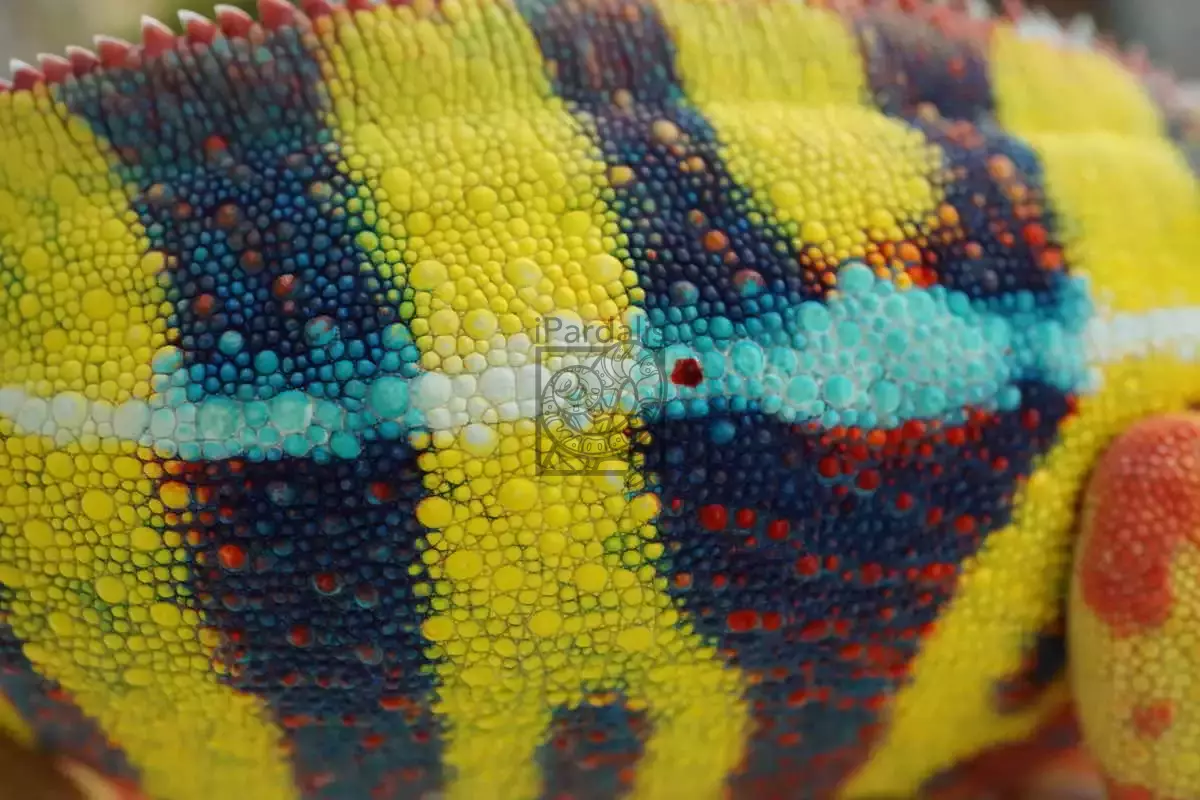June 7, 2023
We have taken a strong public stance against chameleon eggs for sale. This post will summarize our points and provide a source of information on our work on this topic. If you have seen us on Facebook or another forum fighting the good fight, this is why.
Chameleons are not easy reptiles to keep in captivity. They are arboreal species with specific conditions which require constant maintenance. It can be automated to some degree and people who have experience can reach a point where it is second nature to them; however, the average person will struggle, even with an adult. Our hobby needs higher standards for species like this, not lower standards.
Please don’t support this unethical practice.
TL;DR
Egg sales are not ethical because:
- Animal welfare comes first
- Eggs don’t always hatch
- Hatchlings don’t always survive
- 3 months old is the minimum age a novice can be entrusted with caring for a chameleon, and breeders specialize in getting them to 3 months old
- Lineage cannot be confirmed
- Flippers love selling eggs
- Scammers really love selling eggs
- It breaks the husbandry filter for who is/isn’t a “breeder”
- It takes too long for the scam to play out
- Panther Chameleons have genetic determined sex - male eggs are a scam
- Eggs are more expensive than juveniles, but sold as cheaper
- Egg sales are fundamentally deceptive
- We should not sell to impulse buyers, period - extra time to prepare is not actually a good thing
- Unwanted females suffer
- Shipping eggs could have negative effects
1. Animal Welfare Comes First
Many scammers talk about what an amazing experience it is to raise a 1-day old puppy on a bottle… wait. No, I mean egg farmers love to talk about how amazing the experience is for their customers. They use this to distract from the fact that more hatchlings are dead, permanently disabled or short-lived because of this “once in a lifetime” experience. Any argument that tries to justify decreased animal welfare is not ethical.
Peoples’ desire to raise a hatchling should not be our focus
2. Eggs Don’t Always Hatch
Over the past 8 years, we have hatched and raised 114 Ambilobe Panther Chameleon clutches. Our minimum hatch rate was 0% which has happened over a dozen times for various reasons. Our minimum hatch rate, when at least one baby did hatch, was 11.76%. The 1st, 2nd and 3rd quartile range over that time frame was [69%, 88%, 96%]. On average, 78% of our eggs have hatched. We kept very good data on these statistics, possibly the best in the country.
Roughly 1 out of 5 eggs do not hatch
Based on this alone, one out of five customers is being scammed when they buy an egg that is “guaranteed to hatch,” especially if the purchase is non-refundable because they are often forced to buy over-priced juveniles or something else on “store credit.”
3. Hatchlings Don’t Always Survive
We didn’t keep the same quality data on this; however, some clutches hatch weak and some animals do not grow and thrive even under perfect conditions. If the clutch is weak, you may be lucky to get 2-4 juveniles to survive out of 10+. In my experience, this also correlates with lower hatch rates overall. Most egg sellers do not have a guarantee on the animal up until the minimum age of viability, 3-4 months old, so you could very easily end up with a non-viable animal.
Selling non-viable animals is not ethical. Breeders ensure that every juvenile that leaves their facility is going to thrive with their customer.
4. Three Month Old Minimum Age
After decades of work in our community, we have come up with some basic rules of thumb about when a baby is ready for a novice to care for it. Babies are not tolerant of mistakes and their requirements are harder to meet than a juvenile. We know that novices will make mistakes even when coached and provided with impeccable customer service. Part of this standard is when they can safely be shipped, sexed and assessed but part of it is just ensuring the longevity of our animals. iPardalis is among dozens of reputable breeders who abide by this rule of thumb and it pre-dates our project by many years. We also ensure that they are at least 12 grams in weight because age is just a bad proxy for viability.
Selling animals under three months of age is not ethical because novices will make mistakes. It is a breeder’s responsibility to ensure that their animals are robust to those mistakes.
There will always be a spread between bargain shoppers and breeders when it comes to their ability to raise hatchlings successfully. No matter how well educated, prepared or supported they are, they will never reach a breeder level of survival rate. That spread is the number of baby chameleons the scammers are responsible for killing by selling eggs. It could be 1 out of 2 or as many as 4 out of 5. Whatever it is - it is wrong to kill them in the hands of novices.
5. Lineage Cannot be Confirmed
One of the most important aspects of the Panther Chameleon hobby is local form and phenotype. Buyers are often using this to assess the value of the animal they are getting, and sellers change the price of the egg based on this information. However, sellers know it and buyers cannot confirm it until they are well passed the guarantee. Therefore, sellers can price that in without any accountability.
Sellers who are attracted to less pre-sale accountability are not ethical
6. Flippers Love Selling Eggs
The first group of people who love selling eggs are the people who used to sell sick and nearly dead animals at expos or online. These people specialize in marketing and sales and are not good at chameleon husbandry. They love the shelf life of a panther chameleon egg because they can’t keep a panther chameleon alive for more than a month or two. It is less work and not as risky for them. However, as a breeder who prefers to have a direct relationship with my customers and to help ensure my animals’ longevity in their care, I believe we need to cut flippers out and connect customers with breeders. Flippers are bad for our hobby.
Anything a flipper likes should give one pause. Breeders have knowledge and skill that customers need and flippers get in the way of that knowledge transfer.
7. Scammers REALLY Love Selling Eggs
It is hard to think of a better red flag that someone is a scammer than the fact that they sell eggs. They tend to speak in ridiculously certain terms about one of the more challenging niches of herpetoculture - chameleons. They throw around more guarantees than a Nigerian prince who works for the IRS. You want a blue ambanja?! Sure, here’s a random cross-locale egg for $600. You like YBBB?! I have this rainbow egg for $200. You want an egg from Sire x!?! I have this egg from Sire y. Scammers absolutely love this dynamic.
We have enough scams in the hobby - please don’t support this one

8. Broken Husbandry Filter
People selling eggs don’t need to know how to raise babies to sell eggs. However, their customers need to raise babies if they are going to succeed. This is not good. We should reward people who have learned and shared this information with our community, not the egg farmers who have no clue what they are doing.
Egg farmers cannot help their customers raise healthy and strong chameleons
9. It Takes Too Long For The Scam to Play Out
Panther chameleon eggs can take up to 18 months to hatch, but they average around 7 months. This long duration gives scammers a very long time to take advantage of people who don’t realize they’re just flipping whatever egg they can get their hands on, unhealthy eggs, sterile eggs, you name it. Whatever they have done with their unfair information advantage, isn’t really going to be widely understood for up to 2 years. As long as they can keep up their cartoonish bluster, fake accounts, and paid marketing campaigns on social media, they can usually keep the music playing for far too long.
The time it takes for eggs to hatch results in delayed accountability for wrongdoing; therefore, buying and selling eggs promotes less ethical practices in the hobby
10. Panther Chameleons Have Genotypic Sex Determination
One of the more prominent scams in the egg business is worth calling out as it’s own thing. Furcifer pardalis (Panther Chameleons) have genotypic sex determination. You cannot determine if an egg will hatch male or female. We all know males are worth nearly twice as much and most egg buyers would be encouraged by more certainty that they are buying males. A $200 egg sounds much less appealing when you can just buy a ready to breed female at $250… so, it’s a male!
Male eggs are scams on many different levels
11. The Ticket Price is a Big Lie
One layer of the scam is related to affordability. Like many get rich quick schemes and affordable options, this is a lie too. Most people compare the price of an egg and the price of the nicest full-grown panther chameleon they have ever seen. They imagine they’re getting that amazing animal in the egg, so they buy into the idea that it is an amazing deal pretty quickly. Hence why this is such an effective scam. However, here are the extra costs that are incurred from 0-3 months of age. I’m not even going to attempt the cost comparison with the fully proven adult male they envision buying, which is a 1 out of 100 result or more.
- $75 food
- $50 extra decor for baby cage
- $50 small cage
- $50 bad feeder shipments, wasted feeders, or other challenges with live food
- $50 small lights
- time is money, no? Whatever price you put on 3 months of your own labor
$300+ of hidden cost + egg price is greater than just buying a well-started juvenile.
Breeders can spread these costs across dozens of clutches and across dozens of animals within each clutch. Our estimate for the cost when done this way is roughly $150 per head, but no one raising a single hatchling is going to come close to that number. They will spend much more money than a breeder would to raise their hatchling to 3 months old.
12. Egg Sales are Fundamentally Deceptive
Everything from the bluster, to the duration, to the lack of accountability, to the hidden costs is fundamentally deceptive.
Being deceptive is not ethical - we need more transparency, not less
13. We Should not Sell to Impulse Buyers, Period
Some people have floated the idea that impulse buyers have more time to prepare while they wait for the egg to hatch. Ethical breeders don’t sell to impulse buyers and purposely try to discourage that behavior with all pets, but especially chameleons. There are plenty of other ways to give people time to pay or prepare. We have a reservation program which provides that option to people. No need to sell eggs to get this benefit.
Extra time to prepare is not unique to egg sales
14. Unwanted Females Suffer
Female panther chameleons suffer enough as it is in a hobby where they are not properly valued. People buying multiple eggs to increase their male chances or “guaranteed male” eggs will make this problem worse than it already is. It is much better for people to explicitly seek out a female because it is more likely that she will be cared for properly and valued as she should be.
Egg sales are bad for female panther chameleons’ wellbeing
15. Shipping Eggs Could Have Negative Effects
We shared some baseline data on hatch rates and survival to 3 months old; however, there is some evidence that shipping eggs can result in higher deformities and mortality in and of itself. We need more data on it to make definitive claims about cause and effect but the cautionary principle applies here. Eggs have not evolved to be moved around during incubation, so we should limit that as much as we can in captivity.
Conclusion
If you have seen me chewing out an egg seller on social media, this is why. Sorry, not sorry guys. Scammers be damned! Panther chameleon eggs for sale is an unethical scam, not a business strategy, and selling chameleon eggs is a huge red flag. Buyer beware.



